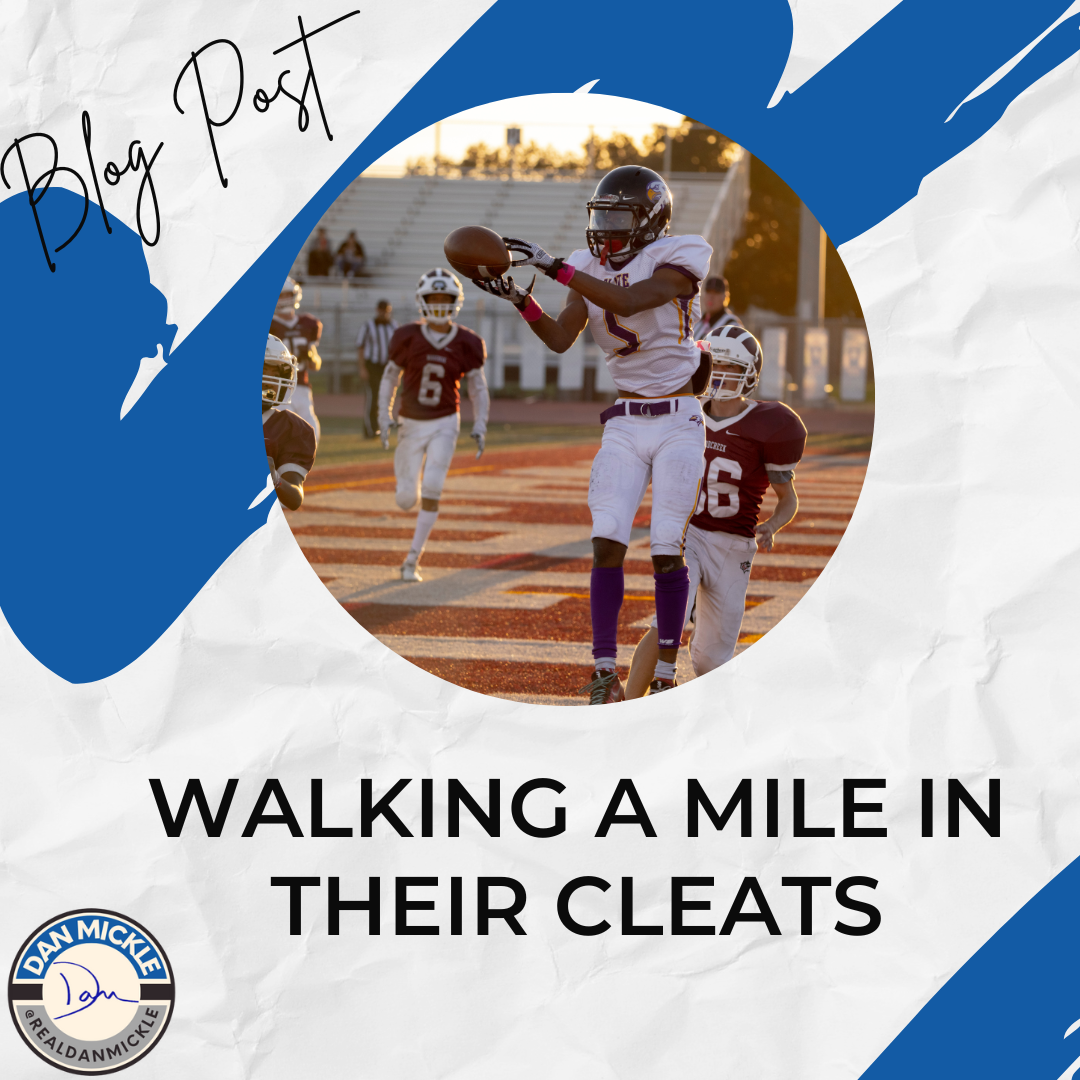I once had a coach who thought motivation meant yelling at us until we “wanted it more.” Spoiler alert: it did not work. What did work? The coach who took the time to actually understand what made us tick—the one who could tell when we were exhausted versus when we were just being lazy, the one who knew that a kid missing a pass might have more to do with a rough day at school than a lack of effort.
That coach had something special: empathy. And it made all the difference.
The Difference Between Hearing and Understanding
Most coaches listen. The great ones actually hear.
A kid tells you they’re tired? You could brush it off as an excuse. Or you could take two seconds to figure out whether they’re tired because they were up all night playing video games or because their parents were arguing and they didn’t sleep.
Empathy is about seeing beyond the surface. It’s about recognizing that your athletes are human beings first and players second. It’s about asking, “What’s going on?” instead of immediately assuming they’re slacking.
The Emotional Side of Performance
Let’s be real—sports are emotional. If you don’t think so, watch a kid’s face the moment they score their first goal or the way a team celebrates a championship.
Empathy helps coaches tap into that emotional side in a productive way. When an athlete is struggling, an empathetic coach doesn’t just critique; they connect. They recognize that fear of failure, confidence struggles, and outside stressors all impact performance.
Ever had an athlete freeze up under pressure? Maybe they weren’t mentally weak—maybe they just didn’t feel safe to take risks because they were afraid of disappointing you. Empathy creates an environment where athletes can push themselves without fear of being torn down.
What Empathy Looks Like in Action
Okay, so how do you actually use empathy in coaching? Here are a few game-changers:
1. Ask More Questions
Instead of just correcting, get curious.
Old – “You have to stop hesitating on your shot.”
New – “What’s making you hesitate on your shot?”
A small shift in approach turns correction into a conversation. Athletes will be more open to feedback if they feel like you’re trying to understand them rather than just fix them.
2. Read the Nonverbals
Not every kid is going to tell you they’re struggling. Some will shut down. Some will joke around more than usual. Some will suddenly forget how to do the basic things they’ve done a thousand times.
A great coach pays attention to these shifts. If a usually confident player suddenly looks hesitant, that’s your cue to check in. A simple, “You good?” can go a long way.
3. Balance Accountability with Compassion
Empathy doesn’t mean letting things slide. It means holding athletes accountable while also acknowledging their humanity.
- A player who’s dogging it at practice might need a reminder to push harder.
- A player who’s struggling to focus might need a reminder that their effort matters.
- A player who just lost a loved one might need a practice where their coach shows they care before they even think about game strategy.
- Accountability and empathy go hand in hand. It’s not about excusing effort; it’s about knowing when to push and when to support.
4. Remember They’re Kids (Even the “Tough” Ones)
One of the biggest coaching mistakes? Treating every athlete the same. The “tough love” approach might work for some, but for others, it shuts them down completely.
Empathy means knowing your athletes as individuals. The kid who thrives on direct, blunt feedback? Great. The kid who needs a little encouragement before they respond to critique? Adjust accordingly.
How Empathy Changes Everything
When athletes feel seen, they buy in. When they trust their coach, they push harder. When they know their struggles aren’t just dismissed, they become more resilient. Empathy doesn’t mean you stop demanding excellence. It means you understand that excellence isn’t just physical—it’s mental, emotional, and situational. So the next time a kid misses an assignment, doesn’t hustle, or seems off their game, pause. Instead of immediately jumping to correction, ask yourself: Have I walked a mile in their cleats today? Chances are, taking that moment to empathize will make you a better coach—and them a better athlete.
Now, go lead with heart. And maybe check in on that one kid who always “forgets” their water bottle. There’s a story there.


